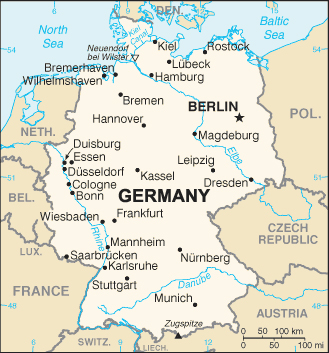RUSSIALINK: Dmitri Trenin: “Russia and Germany: From Estranged Partners to Good Neighbors”

Subject: Russia and Germany: From Estranged Partners to Good Neighbors
Date: Wed, 13 Jun 2018
From: Dmitri Trenin <info@carnegie.ru>
Dmitri Trenin
Director
Carnegie Moscow Center
Article: carnegie.ru/2018/06/06/russia-and-germany-from-estranged-partners-to-good-neighbors-pub-76540
After the end of the Cold War, Russia and Germany entered a period of progressive rapprochement. This was based on the goal of Russian integration into Europe and the wider West. Over the years, however, the partnership became strained through mutual disappointments. It practically ended in the wake of the Ukraine crisis of 2014. Through a new research project, “The Germany/EU-Russia Relationship in the Broader Context of European Security,” made possible by a grant from the ZEIT Ebelin und Gerd Bucerius Foundation, I explore the potential for stimulating dialogue and positive interactions between Russia and Germany, even during the current phase of estrangement. I also elaborate on how this dialogue could be framed, and in particular, how it would fit into existing relations in the Euro-Atlantic and Eurasian regions.
In my new article, “Russia and Germany: From Estranged Partners to Good Neighbors,” I argue that Russian-German relations can be made more productive. Russia could take steps to streamline and strengthen its geopolitical posture in Eastern Europe, while improving the climate for Moscow’s relations with Berlin. First, Russia should unilaterally act within the framework and spirit of the Minsk agreement by doing everything it can to ensure that the ceasefire on the line of contact in Donbass be upheld. It is time that Moscow abandon its hopes for regime change in Ukraine, and refrain from trying to influence its political processes. An approach more focused on gathering people within Russia than on gathering territories around it could work here.
The Kremlin should also roll back its involvement in several lingering and frozen conflicts involving Moldova and Georgia. In particular, it could renew the effort to reach settlements in disputed border regions. Like in Donbass, Moscow could engage Berlin in this exercise. Russia could also act unilaterally to substantially improve its business climate and expand visa-free travel.
Last but not least, the historic post-WWII reconciliation between the Russian and German peoples should be preserved. This can be done by maintaining and developing contacts between Russian and German civil societies, even at the time of strained political relations.
I hope you will enjoy the publication. You can stay up-to-date on our work by signing up for Carnegie Moscow Center newsletters and by following @DmitriTrenin and @CarnegieRussia on Twitter.
